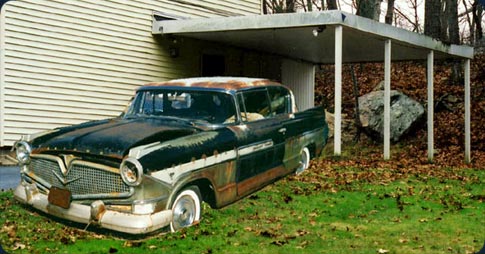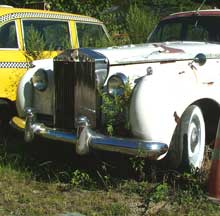Rollers, Hissos and Plymmies
I've heard it said that in the upper reaches of collector car circles it's considered coarse and crass to refer to a Rolls-Royce as a "Roller," although "Rolls" is generally acceptable. The same goes for Hispano-Suiza: "Hispano," certainly, but never "Hisso." Why, then, does everyone refer to a Duesenberg as a "Duesie"? In fact, the nickname is so ingrained in the language that it now describes anything that is grand or large or immense, either good or bad. I'm not sure about "Bug" for Bugatti.
Why is a Cadillac called a "Caddy," while a Lincoln is never a "Linky"? A Chevrolet can be a Chevy (in fact the manufacturer promotes it as such), but Mopar mavens recoil when a Plymouth is called "Plymmie." "Studie" (or "Stude") is all right for Studebaker, but a Packard is never a "Packy." If someone tells you he's got a "Merc," you need to know what continent he's on. It could be either a Mercedes or a Mercury.
Somehow it's frequently okay to shorten car names to a single syllable: Jaguar to "Jag," Oldsmobile to "Olds," but why is a Daimler never a "Dame"?
The single syllable cars, Ford, Cord, Dodge, Nash, Stutz, escape nicknames entirely, but how about the two-syllable makes: Hudson, Buick, Marmon, Edsel, Franklin, Saturn, and even three-syllable DeSoto? I've never heard any of them abbreviated.
It seems logical to make Pontiac into "Ponti," but Pontiac partisans apparently prefer "Poncho" instead.
If you can shed any light on the above mysteries, please direct it to the CarPort, or perhaps you have similar questions of your own.
Finally, a couple of notes on pronunciation. Porsche is a two-syllable word, and Willys does not rhyme with "Phillies." I knew John North Willys' grandson, and he told me the family name was always pronounced "Willis." So, too, did the company's television commercials call the Aero Willys car back in the 1950s.

